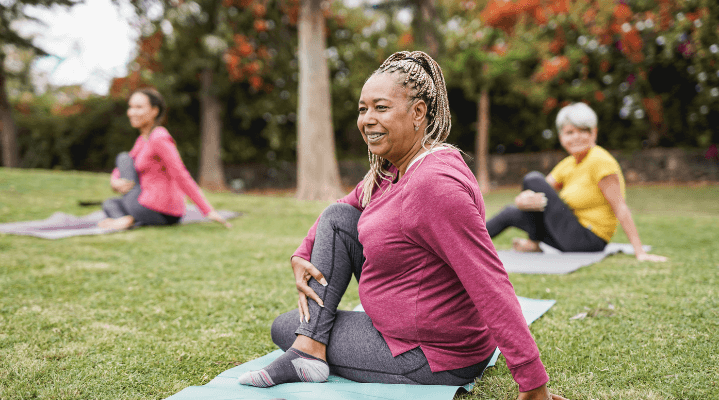
With colder temperatures, shorter daylight hours and the festive season upon us, it can sometimes feel harder to stay motivated and maintain an exercise routine. However, if you’re looking to keep rested and improve sleep, you should be focusing on your physical activity routine.
We spoke to King Edward VII’s Hospital GP, Dr Hagar El-Habti to discuss how and when you should be exercising for a better night’s sleep.
How can exercise impact sleep?
As well as increasing deep sleep and calming your mental activity, exercise can prevent conditions that can cause insomnia. Various illnesses and diseases like obesity, depression and pain, to name a few, can cause people to suffer with poor sleep, but regular exercise and remaining fit can alleviate symptoms in some cases.
You might think that exercise would make you more tired during the day, but having a regime and working out can also battle sleepiness and fatigue during the day, and actually boost your energy levels, which means you’ll be more tired by bedtime, and drift off more quickly – subsequently promoting higher quality sleep.
What kind of exercise can help improve sleep?
Whilst each person should adopt the routine and exercise that works best for them, there are a few things to note.
If anxiety is keeping you up at night, you could focus your exercise regime on tackling that. Aerobic exercises that increase heart and breathing rates, like brisk walking, running or cycling can make getting off to sleep easier by lowering blood pressure and reducing anxiety.
And if you really want to get a good night’s sleep, you should try exercising outdoors. This can boost your body’s circadian rhythm and exposure to daylight on a bracing walk or playing sport can help to keep you alert during the day, and as the sun goes down can trigger the body’s production of melatonin, which is what makes us feel sleepy.
What time of day is best to exercise?
Everyone is different, and what works for you might depend on whether you’re a night owl or an early bird, as well as any underlying health conditions. It’s recommended to stop exercising at least 90 minutes before you plan to go to bed, as this allows endorphin levels and core body temperature to return to levels that are favourable to sleep.
If evenings work better for you, try to avoid more vigorous forms of exercise such as HIIT as they can raise your core bode temperature too much, and in turn impact on the quality of your sleep. Alternatively, you could try stretching, resistance or light aerobic exercise to get the benefits of a workout without raising your body temperature too much.
More information
- If you are concerned by your sleep issues or underlying health concerns, you can discuss your concerns and options with your GP. (Don’t have a GP? King Edward VII’s Hospital has GPs available for same day appointments)
Article Sections
Latest Hospital News
Should you wish to speak to our press team, please visit Press Enquiries




